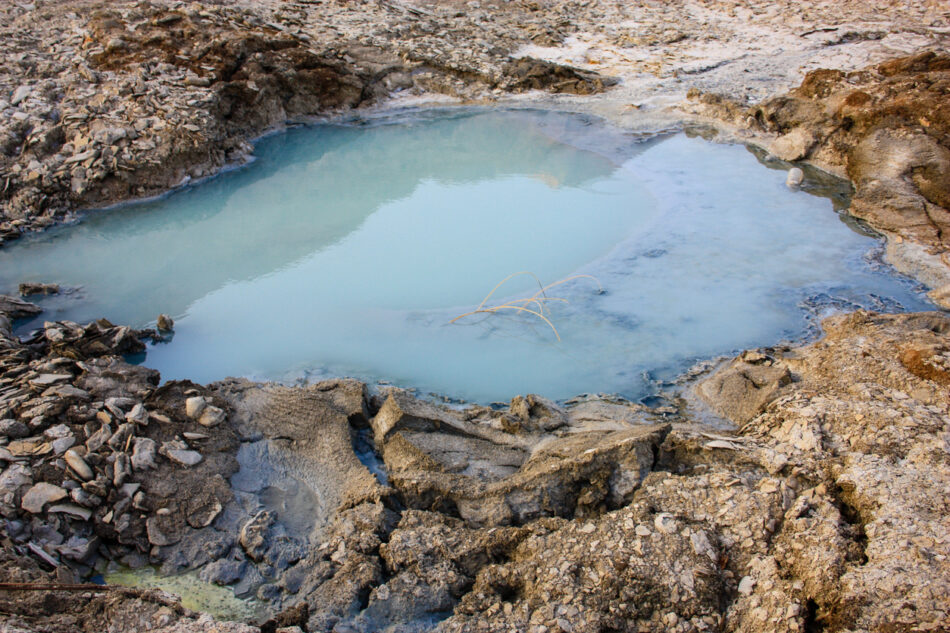Bitterness and outrage are the cultural currency currently reigning supreme, not only in our nation but throughout the world. And the fact that the bitterness and outrage are more legitimately felt by some than by others makes little difference, at least as far as the poisonous impact of trading in that currency.
Bitterness and outrage, it turns out, poison everything for everybody, the same way the best and most legitimate battles scar the combatants on both sides, even when the sides are far from morally equal. The scars we will bear from fighting those fights are not necessarily a reason to stop fighting, and sometimes we decide that there simply is no choice. But the amount of bitterness and outrage we bear as we fight is a choice — our choice — and this week’s Torah reading makes that poignantly and powerfully clear.
The Seventh day of Passover recalls the splitting of the Red Sea, the celebratory songs sung by Moses and Miriam upon the Israelites’ successful crossing, and the ensuing destruction of their Egyptian enemies. High drama indeed, and certainly a reasonable place to conclude the Torah reading, but not where we stop our telling of the story. We continue on, past the triumphant tales as told by Moses and Miriam, and read the story of its immediate aftermath — the three days the Israelites went before finding fresh water, and how they dealt with that challenge.
They came to Marah but they could not drink the water from Marah because it was bitter — marim — which is why they called (the place) Marah. Exodus 15:23.
Really? We couldn’t just end the reading two verses earlier, on a high note? We had to continue immediately into the challenges and contentiousness of the Israelites, even in the wake of such a great victory? Yes! And while there are many reasons for that decision to read on, including that including the verses at Marah, more closely resembles how life really works — the ongoing oscillation between triumph and hardship — there is one that is especially important when it comes to dealing with bitterness, be it in the water, in the culture, or the deepest parts of our psyches / souls.
The water at Marah — indeed, the reason why the place is called Marah — is that its water was Marim, i.e., bitter. But here’s the thing about the word. When written in the Torah, which, like most modern Israeli Hebrew texts, is written without vowels, Marim and Miriam are identical! The choice to find and experience bitterness or to find and experience prophetic hope is at least as much up to the reader as it is to anything else. Or, if that is a bit glib for some of us, we should at least know that what we read into the moment is at least partially dependent on the reading choices we make.
And there is no doubt that Miriam embodies prophetic hope, perhaps more than any other biblical prophet. How so? Look back a few verses at the song she sang, and really at the way it was sung by all of the Israelite women who joined her, as described in Exodus 15:20. “Miriam the prophetess, Aaron’s sister, took the tambourine in her hand, and all of the women followed her with tambourines and dancing.”
Barely a week earlier, the Israelites are running away from enslavement so quickly that they did not even have time for the bread dough to rise, and so we eat Matzah. And yet in the midst of all that rushing about, Miriam and the women who followed her, found the time to pack tambourines! They knew that real liberation is not only about that from which people are freed, but also about that which they are free to pursue and do. They knew that the time for singing and celebrating would come, and they wanted to be ready for it.
Miriam’s path is not easy, especially when all we seem to find in the world is bitterness. And like the waters at Marah, which were, I am sure, genuinely bitter, the world is filled with reasons to be bitter and outraged. But the difference between the bitterness we find and the choice to see more than that is as fluid as those two morphologically identical words — Miriam and Marim.
We continue with the “extra” verses that describe the events at Marah precisely because that is the choice that freedom affords us — to live in the bitterness and outrage of the world as we find it, or to live beyond that reality, refusing to be defined by it, even as we struggle with it. When we figure that out, we will be freer than we can possibly imagine.

